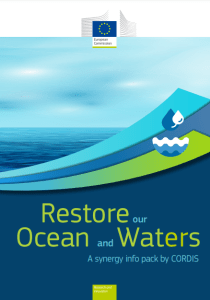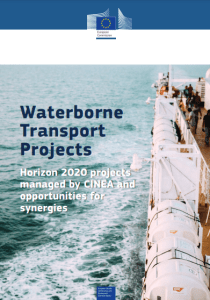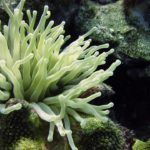The Commission presented on February 11 ambitious initiatives to promote a cleaner, healthier and safer ocean as part of the EU’s contribution to the One Ocean Summit hosted by France in Brest, demonstrating the EU’s leadership role in providing a global response to ocean challenges.
Speaking at the Summit, President Von der Leyen announced three key cooperation initiatives to preserve and revitalize the oceans: a new international coalition to protect biodiversity in the high seas, which makes up 95% of the ocean; a major IT project to enable researchers to carry out digital simulations of the world’s oceans; and the launch of the EU’s fact-finding mission to restore our ocean and waters by 2030.

Restore our ocean and waters |
The EU’s strong zero tolerance towards illegal, unreported and unregulated (IUU) fishing is another cornerstone of its ambitious policy for the sustainable management of marine resources. IUU fishing is a serious threat to global fish stocks, which has brought some of these resources to the brink of collapse. For this reason, the EU has, since 2010, implemented a series of measures to prevent, deter and eliminate IUU fishing.
As far as seaweed is concerned, in recent years, it is becoming a common ingredient in Western vegan dishes as well. But beyond the culinary sphere, seaweed has become a raw material for sustainable industrial applications, such as biodegradable plastics. In addition, their production contributes to improving the health of the oceans by reducing carbon dioxide, phosphorus and nitrogen in marine ecosystems. They are also a nursery and hiding place for many marine animals, promoting underwater biodiversity.
However, despite all of the above, the uptake of algae production and consumption in Europe is slow. Too slow. So the European Commission is stepping up the game.
Together with CINEA and a consortium (consisting of EurA AG, EABA, Systemiq, Technopolis and s.Pro), the Commission is launching EU4Algae. This three-year project will accelerate the scale-up of a regenerative, resilient, fair and climate-friendly algae industry in Europe and bring more novel algae species to the EU market.
On the other hand, pollution, particularly by plastics, is also a serious threat to ocean health, both globally and at the European level, and the EU is working towards the vision of a clean ocean. To tackle plastic pollution, the EU has two main priorities: reducing plastic pollution and accelerating the transition to a circular economy. The Single Use Plastics Directive, in force from 2021, sets rules for phasing out many plastic items that are often wasted and for collecting fishing gear lost at sea.
Science and technology are also at the heart of ocean conservation for the EU. The “missions” are a new EU approach to tackling major societal challenges, providing a critical mass of resources for targeted research. The mission “Restoring our ocean and waters by 2030” aims to ensure that the ocean plays a central role in achieving the European Green Deal targets for 2030.

Waterborne transport projects |
MEPs point out that offshore wind farms can benefit marine biodiversity if they are designed and built in a sustainable way, but they must coexist with other activities, such as fishing and shipping. They also stress that work needs to be done to build public acceptance of offshore wind energy and to convince citizens that renewables are key to achieving energy independence and security of supply.
The report, voted by MEPs in response to a Commission communication, states that it is crucial to design, develop and deploy offshore renewable energy in a circular and renewable way, as significant quantities of metals and minerals are needed. It also calls for an EU-wide ban on the dumping of decommissioned wind turbine blades by 2025.
There is also a need for an ocean culture that contributes to the development of greater awareness and information, and creates opportunities to put new knowledge into practice. The EU is working to improve ocean culture through education and investment in research, and the EU4Ocean coalition is an example of this. This inclusive, bottom-up initiative brings together different partners to share knowledge and improve ocean culture and sustainable ocean management.
In response to this, on February 4, the Minister of Foreign Affairs, European Union and Cooperation, José Manuel Albares, participated in a breakfast organized by the Spanish Maritime Cluster, the organization that brings together all Spanish industries, services and economic activities related to the sea. He stressed the importance of synergies in maritime matters with Ibero-America and has emphasized that the Spanish Government is committed to achieving the emission reduction targets dictated by the European Commission. “We are aware of the commitments made to achieve climate neutrality by 2050 and we are working on the deadlines imposed,” said Albares.
Source
Ministerio de Asuntos Exteriores, Unión Europea y Cooperación







Leave a Reply